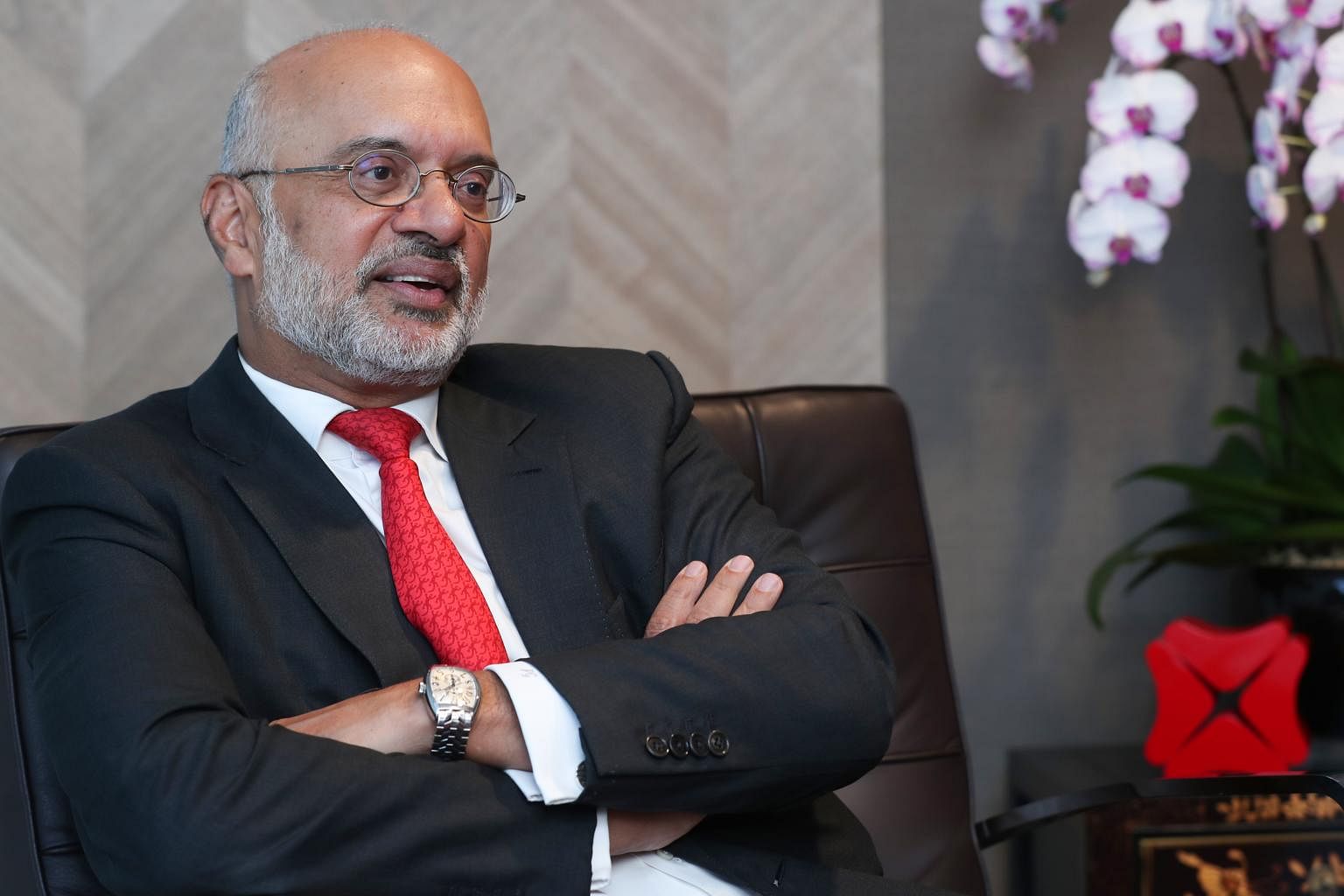Decision to stop coal financing was among toughest of my tenure at DBS: CEO Piyush Gupta
Sign up now: Get ST's newsletters delivered to your inbox

Another area DBS has struggled with is the financing of the palm oil sector, said CEO Piyush Gupta.
PHOTO: BT FILE
Follow topic:
SINGAPORE - Defunding coal was one of the toughest decisions that DBS chief executive Piyush Gupta has had to make during his tenure leading South-east Asia's largest bank by assets.
Speaking at the Bloomberg Sustainable Business Summit at Parkroyal Collection Marina Bay hotel on Wednesday (July 27), Mr Gupta said he struggled at length with the "moral dimension" of the choice he made at the urging of his investors and shareholders.
Addressing the audience of more than 300 in-person and 500 online participants, he said: "I grew up all my life in a country where we had 10, 12 hours of blackouts and brownouts, and the only way we could study at night was with a diesel generator, and part of my family who live in rural Indian villages today still don't get electricity.
"And here I am taking (away) electricity, the fundamental right of people. What do I say to a kid in Indonesia, who is struggling to get electricity to do their studies and eat their food, and I am going to sit on the outside and make a moral judgment that electricity use is less important than the planetary considerations."
While noting that addressing the climate agenda is critical, Mr Gupta also stressed the need to strike the right balance to ensure that the development and social needs of people are not neglected.
In 2018, DBS announced it was going to "restrict financing to coal-fired power projects utilising more advanced technologies", and would stop financing new thermal coal mining projects. This was followed by a blanket cessation of financing of any new coal-power assets in April 2019, its website said.
"To signify our ambition, which will set us on a path for future consideration of steeper reduction in our exposure to carbon-intensive industries, we are committed to zero thermal coal exposure (encompassing loans to mining and power generation) latest by 2039," it added.
Another area that DBS has struggled with is the financing of the palm oil sector, said Mr Gupta, noting that about 14 million households in Indonesia rely on small estate oil palm farming to make a living.
He said: "The Indonesian government 30, 40 years ago transmigrated millions of people from Kalimantan to Sumatra, giving them these one-acre (0.4ha) plots to make a living. The kids' education, healthcare, everything relies on this plot of land."
If a binary view is taken and if financing to this sector is stopped, then the co-dependents of the industry would be impacted, Mr Gupta added.
"So these issues of how you balance the trade-offs are tough, and as a financier, we have to ask: Is it right for us to play God?" he said. "But I don't subscribe to it."
A DBS spokesman told The Straits Times: “DBS serves customers who demonstrate alignment with no deforestation, no peat, and no exploitation (NDPE) commitments and/or to the principles and criteria of the Roundtable on Sustainable Palm Oil (RSPO).
“All our palm oil customers have aligned themselves with either NDPE or RSPO, or both. We expect our borrowers to achieve these commitments and certifications fully within a defined timeframe.”
The spokesman added that as at December 2021, DBS’ exposure to the palm oil sector was 0.3 per cent of the bank’s institutional banking loan book.
Mr Gupta said one way to a fair and just transition could be through the voluntary carbon markets, whose development over the past few years has been encouraging.
“All our palm oil customers have aligned themselves with either NDPE or RSPO, or both. We expect our borrowers to achieve these commitments and certifications fully within a defined timeframe.”
The spokesman added that as at December 2021, DBS’ exposure to the palm oil sector was 0.3 per cent of the bank’s institutional banking loan book.
Mr Gupta said one way to a fair and just transition could be through the voluntary carbon markets, whose development over the past few years has been encouraging.
He said many of the more than 2,000 companies that have made net-zero commitments over the past two years would not be able to change their business models, but are prepared to make investments into decent carbon projects located in places like Indonesia and the Southern Hemisphere.
"I think this is an opportunity to redress the balance to get the economics more level across the board," he said.

